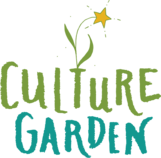Creatures of Habit
I am so susceptible to unconscious patterns. I know that I’m not the only one: humans learn foundational things – like our mother tongue, or social cues – through observation and repetition. Repeated actions or thoughts build neurological pathways in our brains, much as repeated dietary choices build muscles or bones. We are what we eat. We become what we think. Humans are creatures of habit, and our habits create culture. This is how humans are built:
“We unintentionally mirror others when interacting by copying the other person’s gestures, body language, tone of voice and accent, in order to bond with others and feel safe in social interactions. This is called the Chameleon Effect and it’s embedded in human nature.”
Recently, during a meeting with a new team, I was asked to “check in with how I am feeling, and what I wanted to invite to the meeting.” As soon as the room quieted, I checked in with myself and the words “Clarity & Ease” popped into my head; which made no sense to me at the time. I had been acting and feeling very differently from "Clarity & Ease" earlier that morning. So I accepted these words, and I noticed that my mood improved, changing my presence in the meeting for the better. The next day, I recalled that a few weeks prior, during a ceremony in Northern Scotland, I had received two Angel cards: Clarity & Harmony. Slightly different word, very similar meaning. I had completely forgotten about them, and yet they appeared on my lips, changing my experience weeks later.
What if I had done something different at that ceremony? Something that had brought up a past trauma or some habitually negative thoughts? Would I have been at that same meeting, 'checking in with myself,' and finding in my body only fear, defensiveness, detachment, remorse, or jealousy? Would I have remained unaware of the source of my negativity? Even while it was subtly guiding my behaviour?
Imagine a pattern like this is affecting your organisation, maybe just a little bit. Or maybe so much so that no one can safely point out the elephants in the room. There are two ways your organisation can approach this:
Address interpersonal dynamics and habitual patterns early on to skill-up your team so that everyone can handle issues effectively as they arise, OR
Continue in our society’s accepted way of subtle conflict avoidance, or disconnection, so that interpersonal dynamics remain unaddressed and the fabric of the team breaks down unconsciously, silently, and with no apparent cause.
These are two very different outcomes. Which organisation would you rather be part of?
Organisations are groups of humans, with a full range of human experiences, and organisations can develop habitual patterns, too. For many, this involves dismissing difficult or painful experiences which can develop into unconscious patterns that block co-creative flow and prevent new growth. At Culture Garden, we encourage groups to practice connecting as humans in more conscious ways. We suggest normalising habits that increase safety, trust, and vulnerability, which will ultimately allow more co-creative flow.
We’ve gathered a number of social technologies and embodied practices in a Tools Page which groups can use to begin building their organisational culture, reinforcing connection among members. We foresee groups creating new habits which will result in positive outcomes and measurable improvement in achieving a group’s goals. We believe it’s vital to consciously address our habits with the aim of maximising a group's potential ability to rise and shine to its fullest capacity.
Is your group ready to build its healthy group culture?

